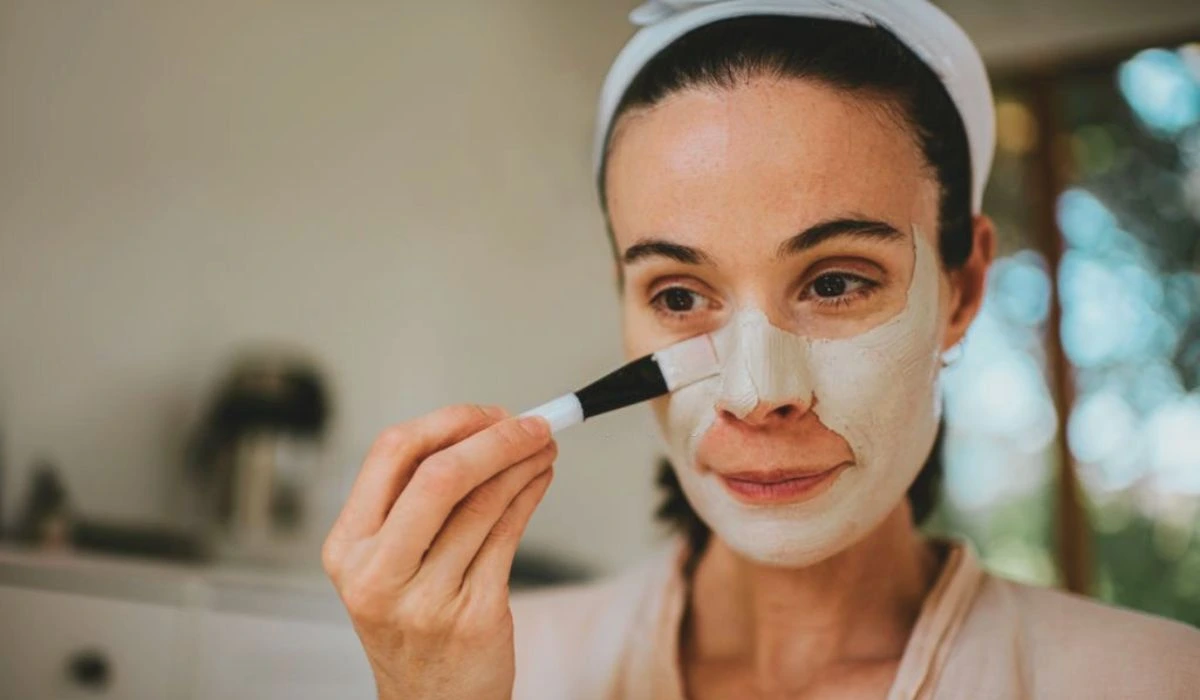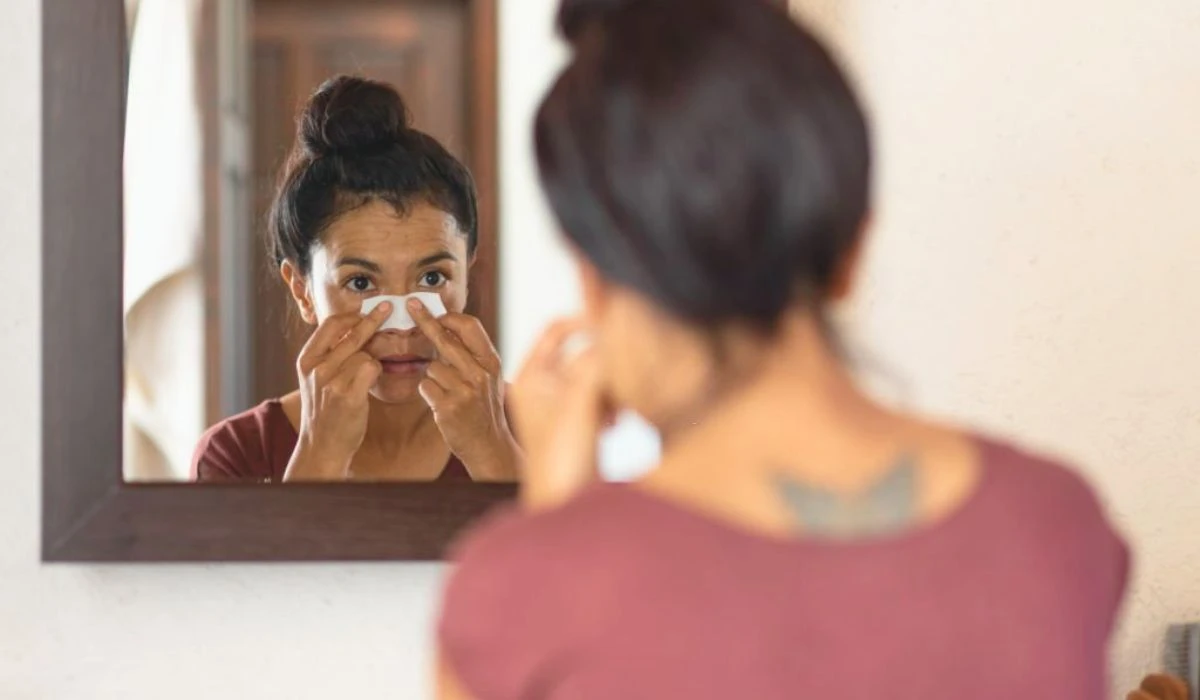Blackheads are a common skin concern that many people want to get rid of, especially on visible areas like the nose. Medically known as open comedones, blackheads form when dead skin cells, oil, and bacteria clog the pores and create a bump. The tip of the bump remains open, unlike closed comedones or whiteheads.
When exposed to air, the plugged material oxidizes and turns black, creating the dark dot appearance of a blackhead. While harmless, removing blackheads on the nose can help achieve clear, smooth skin. This article will examine the causes, treatments, and prevention tips for eliminating nose blackheads.
Causes Of Blackheads On The Nose

Blackheads on the nose form for several key reasons:
- Excess oil production – The nose contains a high concentration of oil glands. Overactive sebaceous glands produce excess sebum, which builds up inside pores along with dead skin cells. This provides the perfect environment for blackheads.
- Pores on the nose are large – The pores on and around the nose tend to be larger than on other parts of the face. This makes them more prone to clogging with debris like oil and bacteria.
- Frequent touching/rubbing of the nose – Habitually touching, rubbing, or resting glasses on the nose can transfer dirt and oil into the pores, promoting blackheads.
- Using pore-clogging products – Heavy creams, oils, and thick makeup applied to the nose can lead to clogged pores and blackhead formation.
- Genetics – Some people are simply predisposed to blackheads due to having oilier skin and larger nose pores that run in their genes.
- Hormones – Hormonal changes during puberty, menstruation, and pregnancy can increase sebum production and blackheads.
Effective Treatments For Blackheads On The Nose
Removing blackheads from the nose requires regular cleansing, exfoliation, and potentially medical treatments to prevent new blackheads from forming:
- Facial cleansing twice daily using a gentle cleanser avoids letting excess oil and dirt accumulate.
- Exfoliators like retinol and alpha-hydroxy acids (AHAs) help unclog pores and slough off dead skin cells.
- Blackhead-clearing strips can help lift away blackheads quickly but don’t address the root causes.
- Extractions performed by dermatologists remove stubborn blackheads. Professional extraction minimizes scarring risk.
- Chemical peels dissolve debris inside clogged pores, reduce sebum production, and prevent new blackheads.
- Prescription topical creams with retinoids prevent blackhead formation by normalizing skin cell turnover inside pores.
- Oral medications like birth control pills or spironolactone can regulate hormones and oil production.
- Laser pore reduction treatments minimize the size of enlarged pores that contribute to blackheads.
Prevention Methods
Preventing blackheads involves paying attention to nose hygiene, making smart product choices, and avoiding bad habits:
- Wash your face twice daily and after sweating heavily. Use a gentle cleanser containing salicylic acid.
- Exfoliate 2-3 times a week to keep pores clear. Don’t over-scrub which can irritate skin.
- Apply oil-free, non-comedogenic lotions, and makeup to avoid clogging pores.
- Remove makeup thoroughly before bedtime to prevent pore-clogging.
- Wear sunscreen daily since UV exposure exacerbates blackheads.
- Don’t pick, pop, or squeeze blackheads which can spread bacteria and lead to infections.
- Avoid rubbing your nose, resting glasses on it, or using abrasive nasal strips which irritate pores.
- See a dermatologist if over-the-counter methods fail to clear up nose blackheads. Prescription treatments may be needed.
Conclusion
Persistent blackheads on the nose can be frustrating to deal with but are treatable using proper cleansing, exfoliating techniques, and targeted treatments. Being gentle and consistent with your nose skincare routine is key, along with avoiding habits that clog pores like rubbing your nose frequently.
If blackheads remain out of control, consult a dermatologist for prescription medications or in-office procedures to get your nose blackhead-free. With a strategic plan, it’s possible to successfully eliminate those unpleasant little black bumps from your nose.

